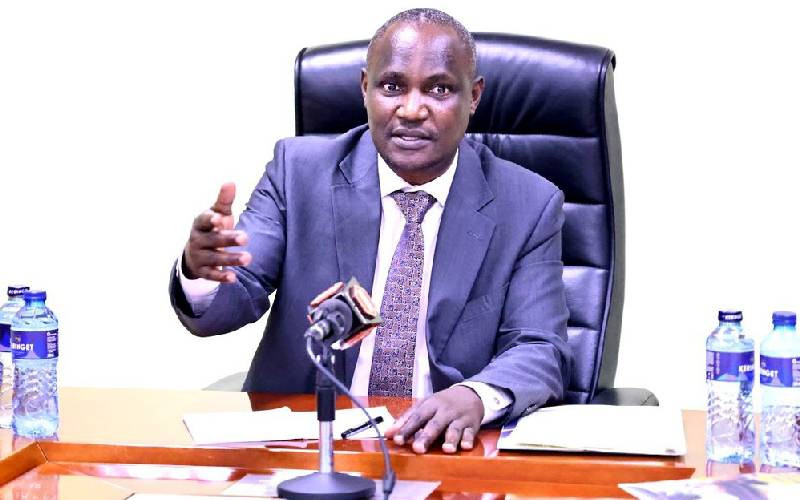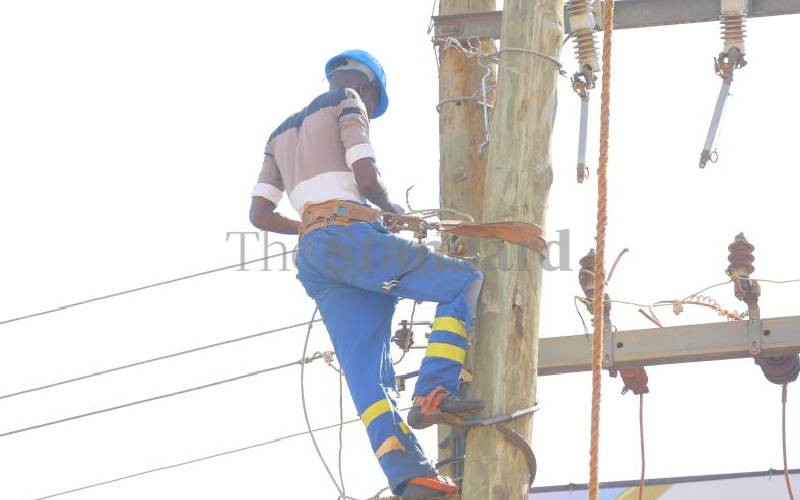
Kenya has welcomed a renewed push by African ministers of Finance backed by the UN Economic Commission for Africa (UNECA) for a regional Africa-wide cross-border payment system.
The new system is tipped to cut the time it takes to conclude cross-border payments from up to 14 days to 120 seconds and facilitate payments for proceeds made from the African Continental Free Trade Area (AfCFTA).
The Pan-African Payment and Settlement System (Papss) is tipped to reduce transaction costs through more efficient direct rates and faster transfers, according to the platform's developer -Africa Export-Import Bank (Afreximbank).
Supporting calls by the UN agency and African ministers, Kenya now says the new payments platform is welcome and timely.
The new system will enable instant payment whereby traders in Kenya and other regional countries will no longer need to convert local units into hard currencies.
Under the new system, a Kenyan trader will issue a payment instruction in his or her local currency to their bank or payment service provider.
The payment instruction is then sent to the new payment system, which is then expected to carry out all necessary validation checks.
The order is then forwarded to the beneficiary's bank or payment service provider with the receiver's bank clearing the funds in their local currency.
This will enable Kenyan traders to reduce costs and ease intra-African trade, backers of the new system say.
The Pan-African Payment and Settlement System, or Papps, has already been commercially rolled out after a yearlong pilot in six West African countries under the West Africa Monetary Zone (WAMZ) with other regional countries, including Kenya expected to join in.
Currently, a buyer in Kenya who intends to purchase goods from a seller in neighbouring Uganda is required to pay the seller in a third currency from outside the continent, either the US dollar, the Euro or the British pound.
They also have to pay extra charges to have the agreed sum processed and sent to the seller and even then, they have to wait several days for transactions to clear.
Aside from time constraints, the process of currency conversation adds to the cost of doing business within the continent.
Current payment arrangements are estimated to cost the continent about $5 billion (Sh650 billion) annually.
And getting the coveted US currency is not easy either. Businesses from diverse sectors have recently complained of difficulty in accessing the dollar in quantities they want, forcing them to wait for days to weeks to accumulate the funds to enable them to make payments to their overseas suppliers.
This has forced the government to intervene, with President William Ruto vowing to address the dollar crisis.
Some traders say they have been unable to source enough dollars on a reliable basis, forcing them to scale down their operations.
And now, National Treasury Cabinet Secretary Njuguna Ndung'u says the new system could revolutionise trade for local traders and their counterparts in the continent just like Safaricom's mobile money service M-Pesa did.
"Cross-border trade cannot take place in Africa unless we reform the payment system," says Prof Ndungu.
He adds: "Cryptocurrencies were developed in response to frustration to cross border payment. We cannot talk about regional trade of the AfCFTA when we have not reformed the payment system."
According to Prof Ndung'u, the lack of an effective payment system has hindered cross-border trade in the region.
"This is where it hurts most because things don't move. When we started M-Pesa I went to many African countries to say it would facilitate trade but we are not yet there," he says.
Antonio Pedro, the Acting Executive Secretary of UNECA, agrees with Prof Ndung'u, saying the new system will help simplify the procedures and some of the binding constraints to intra-African trade.
That way, Kenya and other African countries are expected to reduce dependency on the US dollar and other hard currencies, a situation that has particularly left Kenya facing external shocks that have choked supply chains.
"We have so many bottlenecks and payment systems are one of them. (The new system) will facilitate regional integration and financial inclusion. So that is the essence of it. It is still a work in progress," said Mr Pedro.
"And it will take us beyond the efforts that regions are making to have common currencies," he said.
Afreximbank President Benedict Oramah says under the new system, transaction costs will be lower because traders or investors do not need to convert each country's currency into the US dollar, easing pressure on the local currency.
One of the factors hindering trade according to experts is reliance on third currencies - the US dollar, the euro and the British pound - for the clearing and settlement of cross-border payments and transactions, which, in turn, lead to high costs and long transaction times.
The new platform consequently is billed to provide a natural hedge for the business community to protect against risk exposure thus creating diversification and ultimately boosting local currency exchange rate stability.
Central Bank of Kenya (CBK) is understood to be studying the system before considering whether it would adopt it. Adoption by the regulator would pave the way for local banks to follow suit.
"We have now completed the pilot phase and launched the commercial operations of the Pan-African Payment and Settlement System," says Prof Oramah.
Already, eight African central banks and at least 45 commercial banks have joined the system.
"It will enable the payment for intra-African trade in African currencies, thereby domesticating all intra-African trade payments," adds Prof Oramah.
The African Union-backed system plans to bring in other central banks to ease trade transaction costs, especially following the launch of AfCFTA.
Kenya has already embraced AfCFTA, which aims to bring together 1.3 billion people in a $3.4 trillion (Sh442 trillion) economic bloc.
The pact is tipped to boost trade among African neighbours while allowing the continent to develop its own value chains.
AfCFTA, the largest trading bloc since the creation of the World Trade Organisation (WTO), is expected to increase intra-Africa trade beyond the current 13 per cent and improve the prospects of the African continent to attract huge investments.
 The Standard Group Plc is a multi-media organization with investments in media platforms spanning newspaper print
operations, television, radio broadcasting, digital and online services. The Standard Group is recognized as a
leading multi-media house in Kenya with a key influence in matters of national and international interest.
The Standard Group Plc is a multi-media organization with investments in media platforms spanning newspaper print
operations, television, radio broadcasting, digital and online services. The Standard Group is recognized as a
leading multi-media house in Kenya with a key influence in matters of national and international interest.











